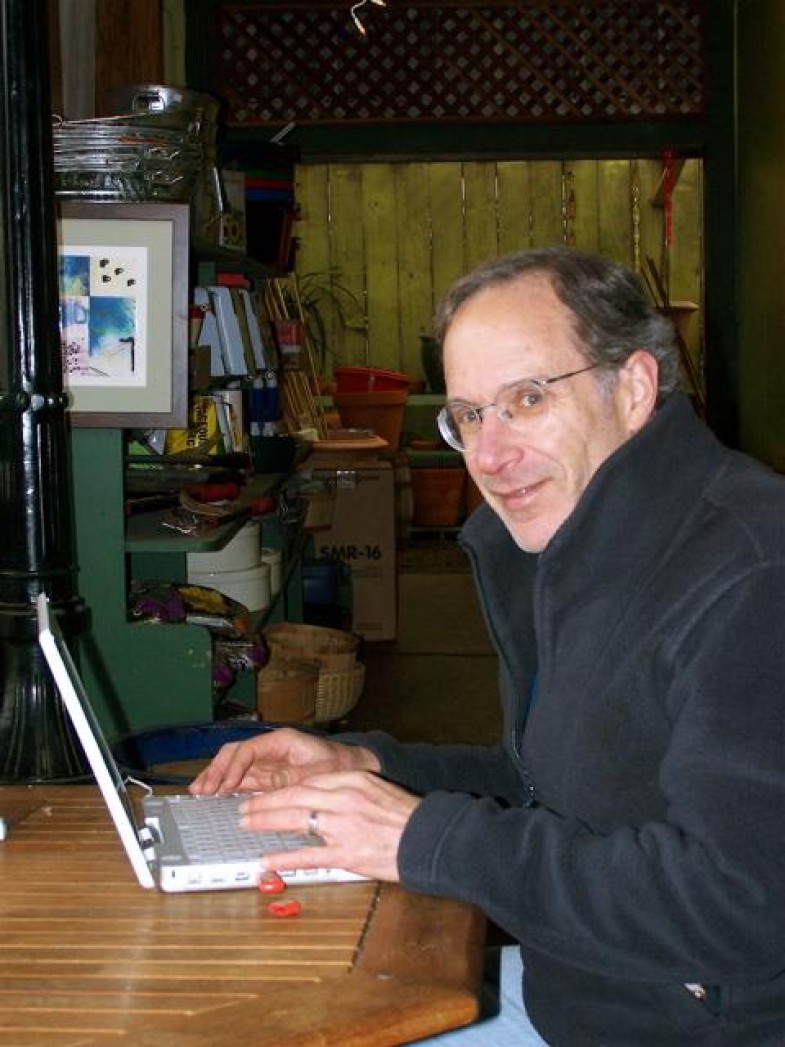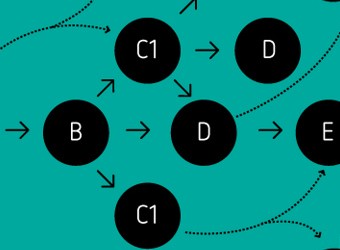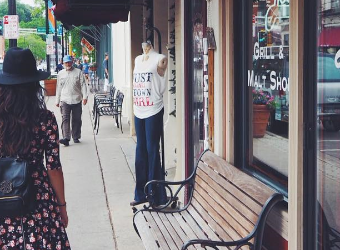If you pass by Toby’s Feed Barn in Point Reyes Station, California – a small town bordering the Point Reyes National Seashore — there’s a good chance you’ll encounter Jonathan Rowe. Rowe spends a lot of time at Toby’s coffee bar, a spot that he calls his “commons office.” Amid the hay bales and sacks of chicken feed, he writes on his laptop and surfs the Web while welcoming friendly interruptions from anyone in town.
Toby’s is a good spot for taking the pulse of the Point Reyes. Ranchers arrive in pick-ups to buy animal feed and hay. Other locals stop to chat after they get their mail at the post office next door. Parents grab a cup of coffee while doing errands with their kids. Tourists sit and bask in the small town scene.
Yet Rowe is no romantic rustic—he has logged plenty of time in high-powered settings. In the 1980s he was a staff writer at influential publications such as the Christian Science Monitor and the Washington Monthly. He worked in Congress as a staff member for Representative (and then Senator) Byron Dorgan of North Dakota. Rowe also spent many years working with Ralph Nader on tax reform and other issues.
After a long stint in national politics and policymaking, Rowe is now concentrating on one of the most important yet neglected sources of social renewal – neighbors. Rowe is exploring new ways to resurrect a hometown commons.
Rowe has been studying the workings and excesses of conventional economic thiking for more than thirty years; much of his thinking is summarized in a still timely 1995 cover story he co-authored for The Atlantic on the obtuse metrics of mainstream economics, particularly the Gross Domestic Product, or GDP. The article, “If the GDP is Up, Why Is America Down?” probed the way that economists equate economic growth with “progress” and happiness. He asked disarmingly simple questions such as: Why is the proliferation of fast food and video games automatically deemed an advance over homemade meals and socializing with friends?
This line of thinking eventually led Rowe to view the commons as an antidote to conventional economics – a way to construct a positive, alternative vision for modern society. Through years of work in both journalism and activism, Rowe had come to appreciate how law and economics generally fail to take account of what lies outside the narrow precincts of monetized exchange. For him, the commons offered a new framework for talking about human economy and needs that a corporate market cannot meet. With his journalistic talents and political savvy, Rowe was one of the most prominent early voices drawing attention to the existence and importance of the commons.
Several years ago, Elizabeth Barnet on Inverness approached Rowe with the idea of exploring how Point Reyes Station and neighboring towns could develop a generative commons culture. Barnet had come across Rowe’s article The Hidden Commons in a 2001 issue of YES! Magazine. The concept fit with her efforts to look at education in a larger context. She asked, “What is the role of community when learning is pursued outside of traditional schools?” This was a starting point that set the commons project in motion and Barnet has been the engine of it ever since.
Barnet and Rowe organized a series of gatherings in living rooms and other venues to discuss the commons concept and how it might apply to Point Reyes Station. Soon, with other community members, they organized an all-day workshop to walk around towns and assess the possibilities for social space. The enthusiasm that day propelled the creation of West Marin Commons (WMC), named for the still-rural edge of Marin County where Point Reyes and neighboring towns are located. The group seeks, according to its mission statement, to “establish, preserve, and enhance both common spaces and the life that occurs in them; and to create social infrastructure for resource sharing, conservation, and learning.” Not surprisingly, these goals lead naturally to ways to address daunting global problems such as poverty and climate change on a local scale.
Soon, volunteers were at work on a number of projects in Point Reyes Station. On the lawn of the old Livery Building, behind Tomales Bay Foods, an organic food emporium, they created a garden that features native California plants. The garden also includes a fence, arbor, and signage, built by a local artist out of recycled wood and driftwood from Tomales Bay. Along Mesa Road, behind Main Street, they worked with the local Chamber of Commerce and the county to reclaim a sidewalk right-of-way that had been covered with debris and brush. They added landscaping with native plants; and now parents can push strollers safely to the new toddler playground across the road. Before they had to use the street.
Now West Marin Commons is trying to acquire an empty lot in town in order to create a small park or zocalo, which is a central gathering place in most towns in Mexico. (Latinos are a significant presence in West Marin.) But this effort in Point Reyes Station shows that property does not have to be owned publicly or by a community organization in order to function as a commons. “Some of Point Reyes’ best commons are privately owned,” Rowe says, and cites the benches outside the Bovine Bakery on Main Street, and the coffee bar at Toby’s, where patrons sit on lawn furniture for sale.
West Marin Commons is striving to build spaces, places and social infrastructure through which community can grow. Its quarterly barn dances at Toby’s are becoming part of the metronome of local life. While reviving community, it doesn’t hurt to have some fun.









